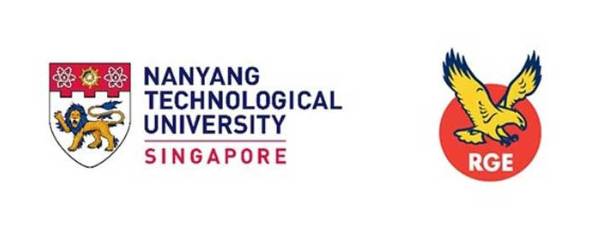NTU Singapore, RGE Group launch joint research centre to tackle textile waste

Even so, an industrial-scale scheme is certainly needed to bring about meaningful change, such as the latest initiative by the Singapore-based resources-based manufacturing group Royal Golden Eagle (RGE). Recently, RGE and Nanyang Technological University, Singapore (NTU Singapore) launched a new textile recycling research center to accelerate innovation in textile recycling and translate research outcomes into practical solutions that can be deployed in urban settings like Singapore. The RGE-NTU Sustainable Textile Research Centre (RGE-NTU SusTex) comes from a SG$6 million investment from RGE, the world's largest producer of viscose. The research center is located at NTU’s School of Materials Science and Engineering. Researchers will look into areas such as next-generation eco-friendly and sustainable textiles, and refabricating textile waste into fiber. The aim is to study the chemistry of various textile materials and determine the optimal processes and techniques required to bring us closer to a circular textile economy.
RGE Executive Director Perry Lim said more countries were banning the import of waste, including textile waste, nowadays. However, current textile recycling technologies, which rely on a bleaching and separation process using heavy chemicals, cannot be implemented in urban settings such as Singapore. “This is where RGE can help, drawing on our 20 years of experience in viscose fiber making, to provide SG$6 million in funding to establish the research center and fund its work, share our global research and development expertise as the world’s largest viscose producer and potentially scale up the viable innovations and solutions across our global operations,” Lim said. “Backed by Singapore’s strong research ecosystem and leveraging NTU’s engineering capabilities, we aim to catalyze innovation and develop a first-of-its-kind urban-fit textile recycling solution,” he added. NTU President Professor Subra Suresh said the goal of the RGE-NTU SusTex was very much aligned with Singapore’s zero-waste vision to build a sustainable, resource-efficient and climate-resilient nation. “This partnership between NTU and RGE draws on RGE’s industry experience as a global resources-based manufacturing group and leverages NTU’s intellectual assets in materials and environmental chemistry,” he said. The joint research center leverages the university’s emphasis on interdisciplinary collaboration to catalyze high-impact research and take innovative ideas from the lab to the real world. It also builds on RGE’s wealth of industry experience and strong manufacturing capabilities. EDB seeded the relationship between NTU and RGE when the idea of an urban-fit textile recycling center was first germinated last year. It will look into four research areas: cleaner and more energy efficient methods of recycling, automated sorting of textile waste, eco-friendly dye removal and finding alternative uses for textile by-products and developing a new generation of eco-friendly and smart textiles. In conjunction with the establishment of the RGE-NTU SusTex, RGE plans to build a textile recycling pilot plant in Singapore that is low carbon, has low chemical emissions and is energy efficient. The new sustainable textile recycling solutions developed under the RGE-NTU SusTex are expected to be test bedded in this pilot plant. RGE’s recycling initiative is also in line with those of APR, the first fully integrated viscose rayon producer in Asia, based in Pangkalan Kerinci, Riau. As part of the RGE group, APR’s APR2030 sustainability strategy aims to utilize 20 percent of recycled textile content in its viscose staple fiber (VSF) production by 2030. As part of this strategy, last year APR commissioned a study by Closed Loop Fashion, an established hub for applied sustainability and circular economy practices, and Reverse Resources, an online mapping and tracking platform of recyclable textile waste flows, to survey, study, map and identify potential sources of pre-consumer textile waste supply from garment and textile factories in Indonesia, Bangladesh and Sri Lanka – three major textile and apparel producing countries. This study report serves as a precursor to APR’s plan to develop a road map and to create a stable supply line to feed a future recycling plant to convert cotton and cotton-rich textile waste and viscose textile into new materials feedstock. At the same time, the company is committed to reducing 50 percent of its water use, 80 percent in waste-to-landfill per product ton through closed-loop production and recycling investments, and a greater than 95 percent sulfur recovery rate by 2030. This article was published in collaboration with RGE.
https://www.thejakartapost.com/business/2022/08/10/ntu-singapore-rge-group-launch-joint-research-centre-to-tackle-textile-waste.html
[ㄏ Maeil Business Newspaper & mk.co.kr, All rights reserved]
Copyright © 매일경제 & mk.co.kr. 무단 전재, 재배포 및 AI학습 이용 금지
- SoCar and Everon join hands to expand Korea’s EV charging network - Pulse by Maeil Business News Korea
- S. Korea set to deliver 5th deficit month in Aug. with red figure in first 10 days - Pulse by Maeil Business News Korea
- Samsung, LG premier latest OLED technologies at K-Display 2022 - Pulse by Maeil Business News Korea
- Seoul readies Team Korea to win Saudi megacity and nuclear reactor projects - Pulse by Maeil Business News Korea
- Samsung Elec needs aggressive gov’t support to catch up with TSMC: Report - Pulse by Maeil Business News Korea
- 강경준, 상간남 피소…사랑꾼 이미지 타격 [MK픽] - 스타투데이
- AI가 실시간으로 가격도 바꾼다…아마존·우버 성공 뒤엔 ‘다이내믹 프라이싱’- 매경ECONOMY
- 서예지, 12월 29일 데뷔 11년 만에 첫 단독 팬미팅 개최 [공식] - MK스포츠
- 이찬원, 이태원 참사에 "노래 못해요" 했다가 봉변 당했다 - 스타투데이
- 양희은·양희경 자매, 오늘(4일) 모친상 - 스타투데이